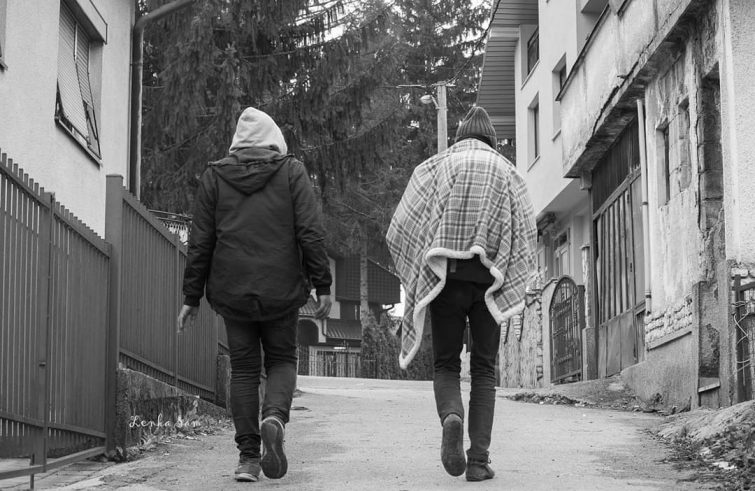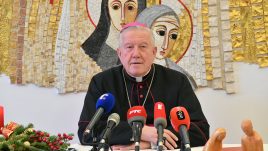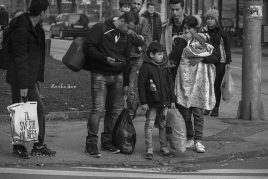
“We inhabit a region where the West and the East have historically met and clashed, not just on a religious but also on a cultural level. Encounters and clashes distinguish these lands. Suffering can be turned into a cure for the future, and negative experiences into a new opportunity for cooperation and complementariness. Collaboration and dialogue are key to building Europe and to transforming the Mediterranean into a common good.”

Msgr. Stanislav Hocevar, Archbishop and Metropolitan of Belgrade, will bring these sentiments to the meeting of Mediterranean Bishops and Mayors to be held in Florence on 23-27 February, in the wake of the event in Bari in 2020. In the capital of Tuscany Msgr. Hocevar will be joined by the president of the International Episcopal Conference of Saints Cyril and Methodius (Serbia, Montenegro, Kosovo and Northern Macedonia), Msgr. Ladislav Német, bishop of Zrenjanin, and vice-president of CCEE, together with a lay expert from Caritas Serbia.
The only way. A staunch supporter of all-round dialogue, Msgr. Hocevar reiterated to SIR the need for the Balkan countries – at war until 30 years ago – to rid themselves of the role of “victims” and start pursuing “the path of reconciliation and coexistence”, the only way to broaden geographical borders and sever the dangerous ties between faith, politics and ethnicity, which can lead to tragedy, as seen in recent history. After Bari, the suffering of the Balkans returns to Florence, bringing with it the certainty that “so much suffering cannot heal in a few decades. What has been lacking over all this time is a medicine called ‘integral dialogue'”, the archbishop pointed out. “A new peace is possible and the time is now. All the new republics born after the dissolution of communism need to grow together. Our peoples were fighting each other until a few decades ago. Now they are connected to each other, from Slovenia to North Macedonia.”
Msgr. Hocevar explained: “My understanding of integral dialogue is one that encompasses politics, culture, economics, religion, science and sport. Dialogue promotes a greater knowledge of these lands also in Western European countries. For example, how many young Italians are aware of the great religious heritage of the Orthodox monasteries of Serbia? This is an immense culture that should be disseminated for the benefit of all.”
 The Balkan Route. The Archbishop of Belgrade has at heart yet another issue, acting as a yardstick for cooperation and integration between the West and the East: “I am referring to the phenomenon of migration, which in this area follows the Balkan Route.” Here, the extent of civilisation of many European countries is put to the test, caught between reception and rejection. “The transit of thousands of refugees headed to Europe must not be merely and always treated as an emergency, since it has now become a structural phenomenon. It is of the utmost urgency to ensure the capacity for reception and integration. The small Catholic Church in Serbia has welcomed Africans from Burundi, Vietnam and many other countries, both Catholic and non-Catholic believers. But there is not much more than we can do to restore dignity and self-worth to these people. We must seek and find new ways of welcoming and integrating them, overcoming the attitude to act hastily when there is an emergency. This requires, however, the help and reflection of everyone.”
The Balkan Route. The Archbishop of Belgrade has at heart yet another issue, acting as a yardstick for cooperation and integration between the West and the East: “I am referring to the phenomenon of migration, which in this area follows the Balkan Route.” Here, the extent of civilisation of many European countries is put to the test, caught between reception and rejection. “The transit of thousands of refugees headed to Europe must not be merely and always treated as an emergency, since it has now become a structural phenomenon. It is of the utmost urgency to ensure the capacity for reception and integration. The small Catholic Church in Serbia has welcomed Africans from Burundi, Vietnam and many other countries, both Catholic and non-Catholic believers. But there is not much more than we can do to restore dignity and self-worth to these people. We must seek and find new ways of welcoming and integrating them, overcoming the attitude to act hastily when there is an emergency. This requires, however, the help and reflection of everyone.”
Transforming suffering. “In Florence we intend to contribute to the promotion of integral dialogue and reconciliation: these are pressing issues that need to be addressed in practical terms. Our International Episcopal Conference of Saints Cyril and Methodius,” continues Msgr. Hocevar, “brings together the bishops of Serbia, Montenegro, Kosovo and northern Macedonia. These nations continue to experience difficulties in reaching out to each other because of their history. Unless we manage to transform the suffering of the past into care for the future, we will not be able to grow. Sharing suffering in order to transform it into dialogue and openness is a commitment that can be postponed no longer.”









